Outdoor Activist Anthony Taylor-Theba Balances Culture and Nature
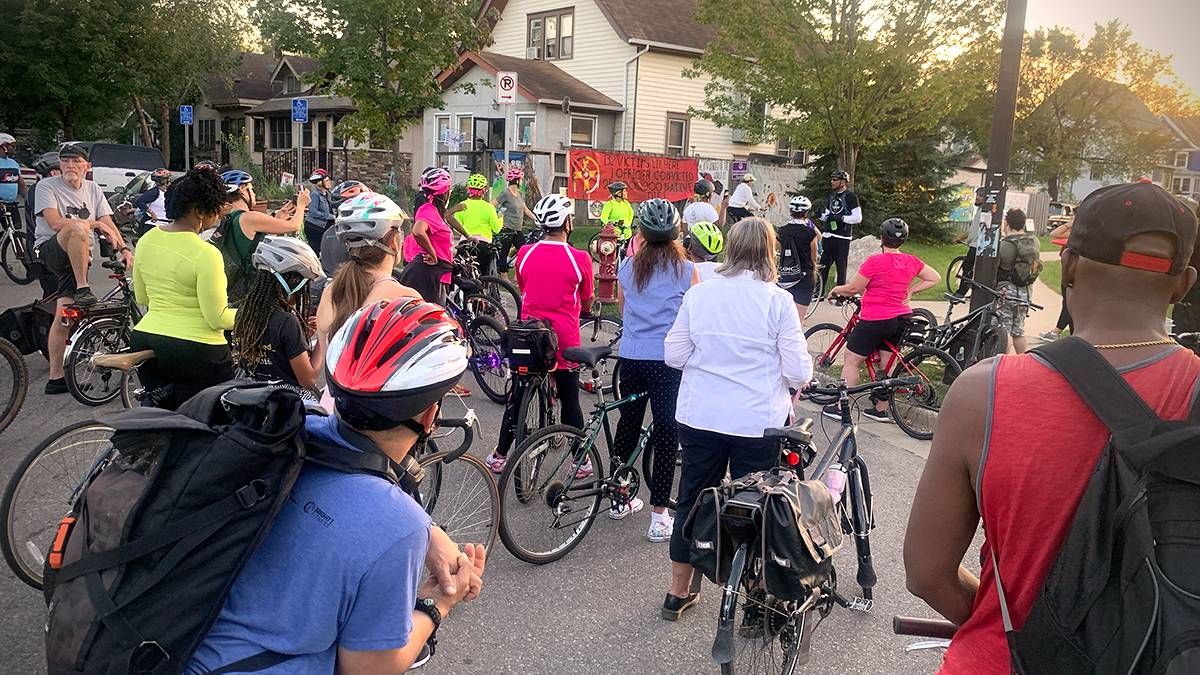
"It's not a bike ride. The bike is the vehicle we are using, but it's more about introducing people to a place they live in, but don't actually know."
Anthony Taylor-Theba is an outdoor activist and founder of "Slow Roll Twin Cities" with The Cultural Wellness Center. Taylor-Theba curates bike rides through Slow Roll Twin Cities as a way to empower communities of color to rediscover, heal, reconnect and reimagine their communities together by bike.
In late September, Slow Roll Twin Cities and The Cultural Wellness Center partnered up with Twin Cities PBS on Biking Through History for Your Health, an interactive and physical 90-minute curated "Slow Roll" bike ride throughout South Minneapolis.
"So often people who live around here get into their car and go from point A to point B with very little effort, it's almost like a teleportation device where everything in between is invisible," said Taylor-Theba. "But when you put people on a bike, you focused their effort, they become self-propelled, they begin to move at a pace that allows them to be in the moment. You now are covering real estate at a pace where you can see it all and take it all in. It really affords you to have these really interesting discoveries your own neighborhood and how it works."
More than 100 riders participated in the September slow roll event, and Taylor-Theba sees power in numbers.
"If you put a group of 30, 40, 100 people, and you put them on bikes together, there's incredible safety in those numbers. Most people feel vulnerable on a bike."
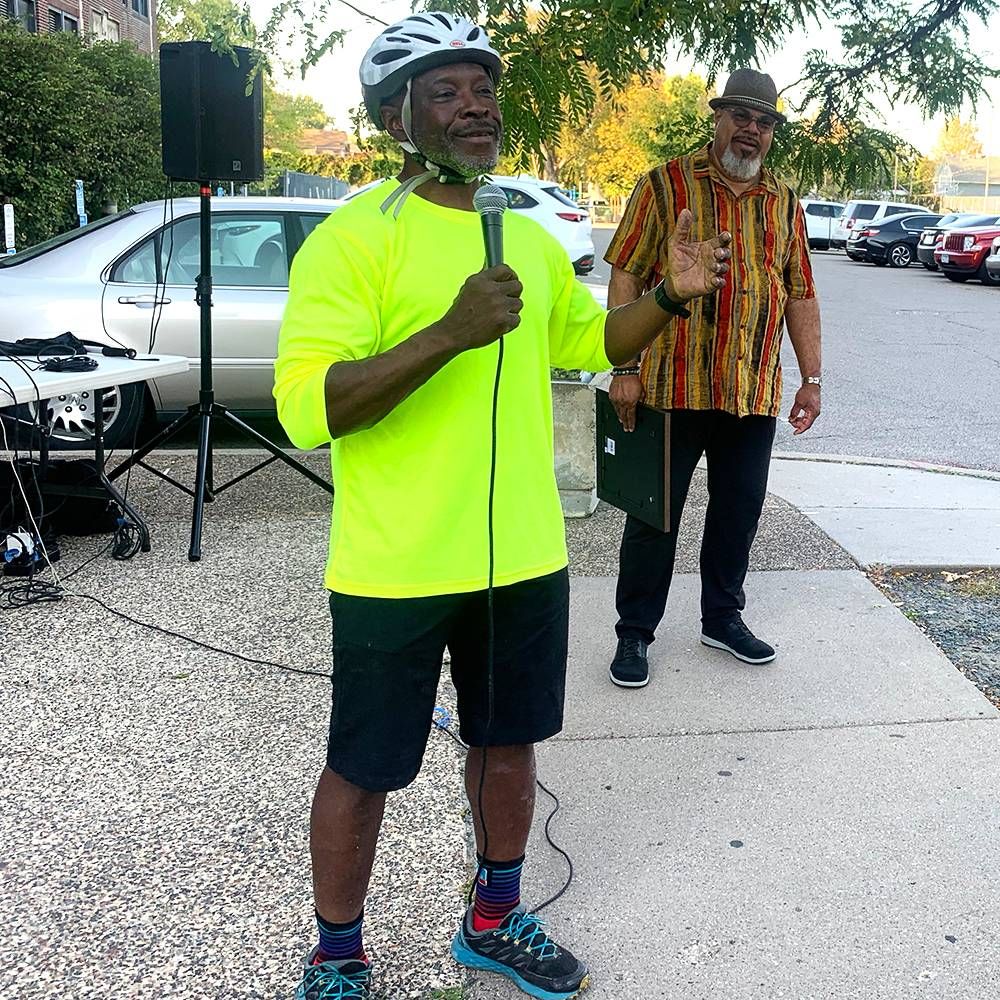
That feeling of safety is one goal for Taylor-Theba's slow rolls. Along with feeling safe, he wants these rides to introduce people to communities they don't know and provide feelings of unity and connection.
"Connect them to a feeling of safety and unity that they long for, but very rarely feel, and then give them connection through time that they have an innate awareness of, but don't really know what those connections are. For most communities of color, especially the African-American community, there's always this idea of being connected to the ancestors. So we want to take them on a ride that connects them to moments in the past. The goal is not to get in shape on a bike ride, it's to feel safe and connected to the community and land around you."
Taylor-Theba is not only a cyclist - he's a paddler, fisherman, snowboarder, mountain biker and cross-country skier who believes outdoor activity is vital to physical, mental and even spiritual health, and that it serves as a tool for healing from racial trauma.
In addition to talking about his slow roll events, I had the pleasure of interviewing Taylor-Theba, who also serves as the SVP of Equity in the Outdoors for the YMCA of the North and is the co-founder of Major Taylor Bicycling, to get his take on the narrative of being a person of color in outdoor spaces, his views on health and wellness, and his hopes for the future.
This interview has been edited for clarity and length.
What do you think the current narrative is for Black and brown people in the outdoors?
Anthony Taylor-Theba: The current narrative is that outdoors is white people shit. Biking, that's what white people do. Canoeing, that is what white people do.
The problem with that, there's a parallel that urban is Black. Young Black people's identity equals young, cool, slick, city-based. I believe that is actually a remnant of migration, where Black people moved to the city and the last thing they wanted to be was country. We walked away from a narrative where we were deeply connected to Minnesota and the land. Black people had cooked their own food, farmed, etc. Now young people think it's white people shit.
The counter narrative that's really critical right now is that Black people belong everywhere, and I think that's absolutely right - especially outdoors. Outdoors is a space for healing, self-discovery, inward reflection and connection. We have to heal ourselves.
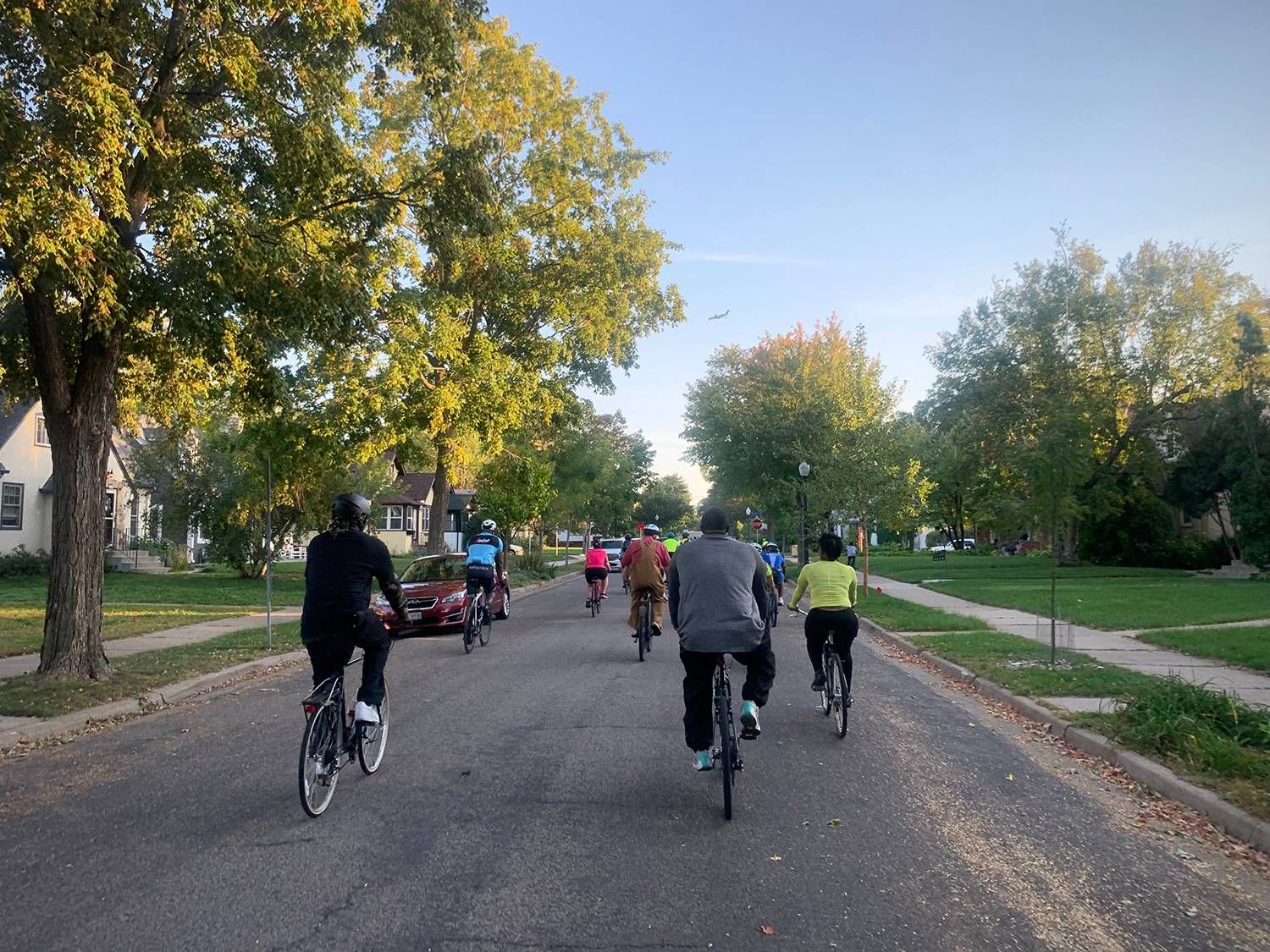
What future are you hoping your Black and brown wellness community gets to experience?
Taylor-Theba: The future that I'm hoping for is that we really take a perspective where the goal is always balance, something that you can learn from nature. The goal is not optimum performance or maximization. The idea is balancing the masculine and the feminine. It is balancing the natural and the technological.
When you work towards that goal, you will consider all of the elements - personalities, the history and the future. That is a very nature-based way of seeing the world, when our goal is maintaining balance. We see health as the outcome of the pursuit of balance. We do not consider all the aspects. In considering emotional well-being as foundational to physical wellbeing, is a really big difference. We think health looks a certain way, we end up pursuing the aesthetic of thinness, not actual health.
[What] we should be saying is: Do I have a balanced relationship with food? Do I have a balanced relationship with movement? Do I have a balanced relationship in my relationships? Do I have a balanced relationship with money?
Consumerism is what will kill us. Consumption. We don't see consumerism as the enemy. Consumerism leads to commodification. Commodification is the enemy of culture, of the creative spark.
I think inside the concept of culture is the concept of rituals. Inside of the concept of nature is the concept of rhythm, when we can align and feel these, we become happier.
So as a wellness community, we want our members to really understand that culture is the foundation of our wellbeing, that connecting to the rhythm and cycles of life are foundational to being in balance, and being in balance is the pursuit. And it's a daily pursuit.
What obstacles do BIPOC still face in regard to wellness?
Taylor-Theba: Experience is one of them. We weren't around wellness growing up, we didn't have access to it.
At The [Cultural] Wellness Center, something we hear about often is people see a new activity and go, I'll try it once. And worse than that, they go with a friend who already does it and makes them feel bad about their skill level.
People need to learn the skill as a progressive activity where they can show continuous improvement because continuous improvement is the foundation of what people love. They'd love to see themselves growing. So that's how we do it. I never would let you go alone the first three, four times, you get a lesson every single time. We do it as a community. And the goal was building community. It's not learning to ski. It's actually being a part of a skiing community of Black people. And then broadly you feel like you're supported by people.
So that's a shift that is opposite. The European paradigm of outdoors, which is the rugged individualism. That's the ethos sometimes that we sell of outdoors - it's about rugged individualism. Proud suffering. And I'm saying, no, it's skill-building. All the things you need to survive are skills. So let me show you the skills in order so that you can feel successful. And if you feel successful, I want you to come back. And that's the way we do it. So you have to have that introduction in a way that really makes you feel good about yourself. And if you do that, you'll come back.
The other part of it though, that's the equipment side of it. We run a program called Melanin In Motion, and Melanin In Motion is all about outdoor activities.
The thing I find about outdoor sports - because I think that's very particular, wellness is different - outdoor sports, gear is an obstacle. But this is our goal: build community first. Build community first, don't worry about gear. Build a community of people that support each other. What happens inside community is equipment rotates, but the problem is getting into the community. Once you're in the community, people buy new gear, they hand it down and it starts to rotate… But because we don't build community first, we always have the obstacle of gear. So that's our goal. We build community first. Then once the community knows individual needs, then the community can act to solve that need.
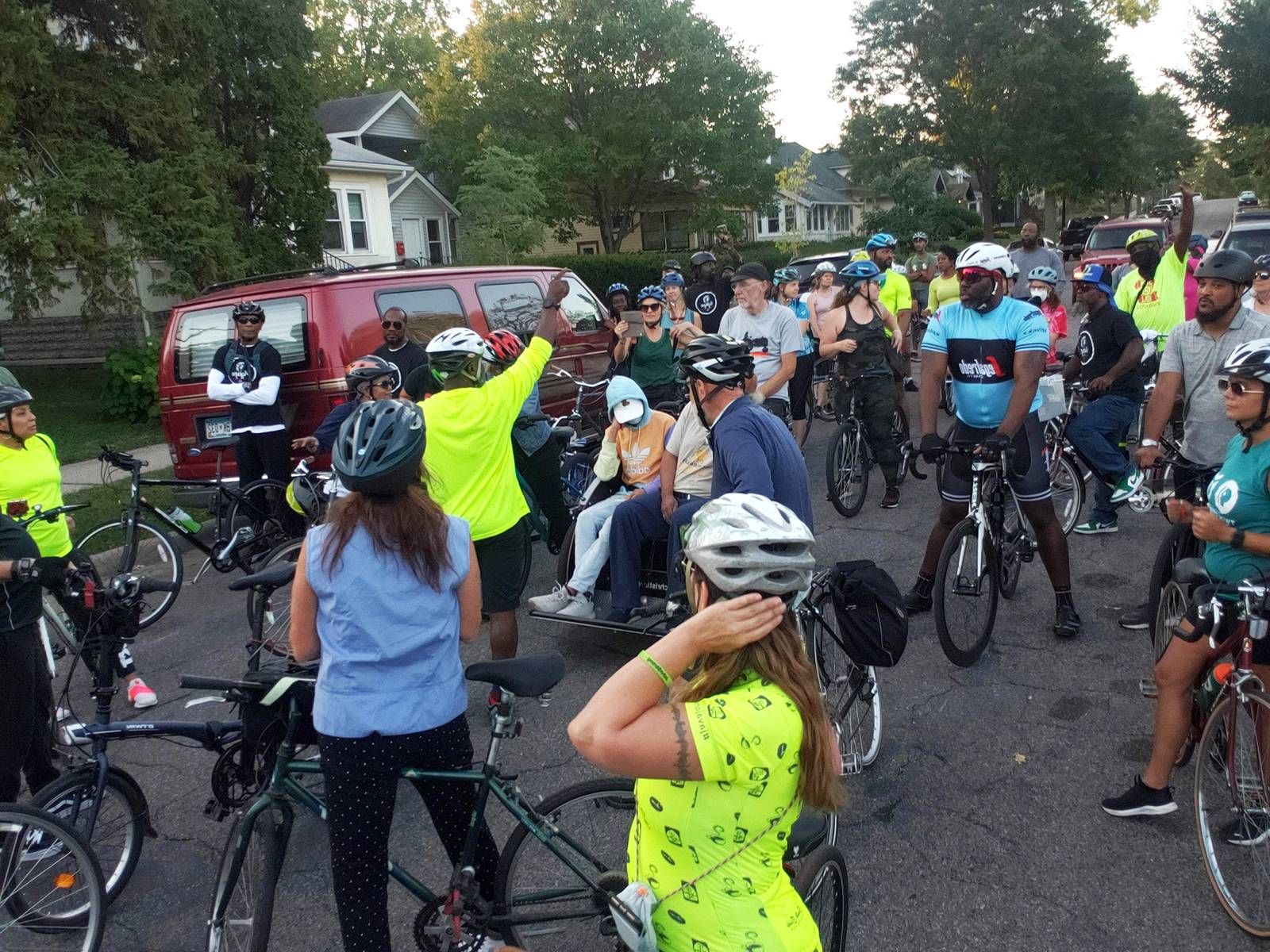
Some people might worry that they're going to get hurt and might not partake in outdoor activities or sports for that reason. What ideas do you have to help them?
Taylor-Theba: There's a lot of opportunity between starting something and a potential injury. If you talk about the sport of cycling, you could get hurt. This is totally different. We're saying, "Hey, you know what? How about if you go on this thing with me? I'm doing an art tour. I'm going to ride bikes, but what we're going to do is we're going to look at all the artwork around the Twin Cities that focuses on the George Floyd movement." Now I'm selling you on an experience. It happens on a bike. So now you're thinking about the experience instead of "I might get hurt."
I also realized what people are afraid of is not being hurt - they're afraid of failure. They're afraid of embarrassment. They're afraid of emotional pain because you and I both know the emotional pain trumps physical pain every day.
Especially Black people go, "So what you're saying is, I'm going to go 400 miles into the woods where there are no law enforcement, which I can't trust them either, but white people with guns, with nobody around and nobody to be their witness. That's not a good move for me. And I don't know what I'm doing. And I'm going to embarrass myself in front of my kids…"
There's a whole bunch of layers to that. Fear is a hundred percent rational and valid.
And that's really what we have to do with biking, with nature, with outdoors, with everything - we have to go, what are your real fears? And we have to know that they're valid and then we have to go, "Great. If I can help you handle that fear, will you then go outside with me?" And they say, "Yeah, okay, cool." Let's work on that.
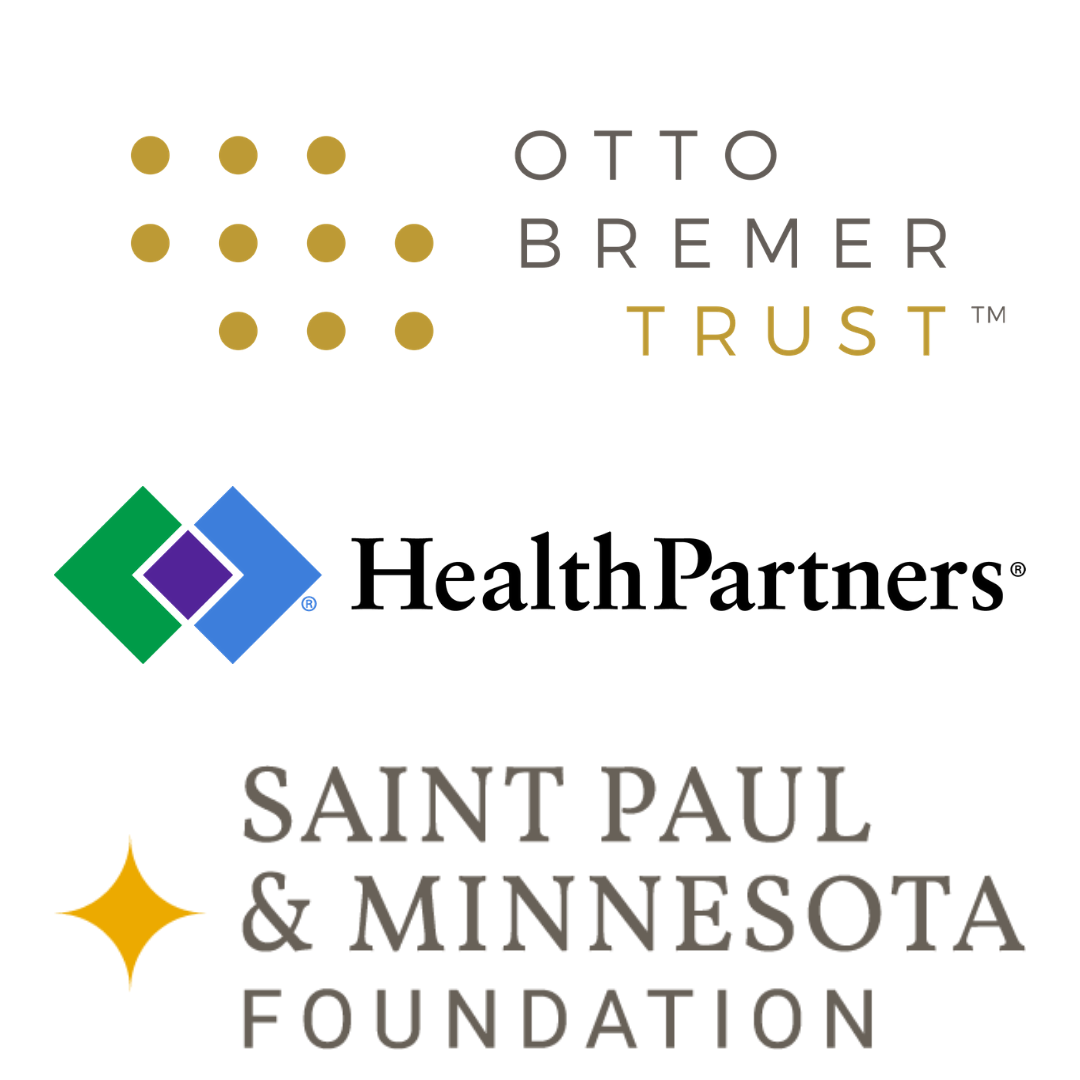
The Racism Unveiled digital storytelling project is funded by grants from the Otto Bremer Trust, HealthPartners and the Saint Paul & Minnesota Foundation.
Racial gatekeeping often prevents kids of color from experiencing equine sports and the great outdoors. But the organization CREW Urban Youth Equestrians seeks to shift the narrative by giving BIPOC kids the opportunity to work with rescue horses. Along the way, they learn about mental health and awareness of others, and they develop confidence in their own voices.
A second pandemic school year is underway, and one debate is heating up among, educators, administrators and parents: Should critical race theory (CRT), a legal framework developed in the mid 1970s that examines how institutions and laws perpetuate systemic racism, be part of school curricula?
The web series Trial & Tribulation: Racism and Justice in Minnesota examines that deep-rooted issues of systemic racism in the state that ultimately led to the murder of George Floyd in May 2020 and the trial of former MPD Officer Derek Chauvin in March 2021. In this final-for-now episode, we take a happy turn and wonder, "Why are cookouts so important for Black joy?"
